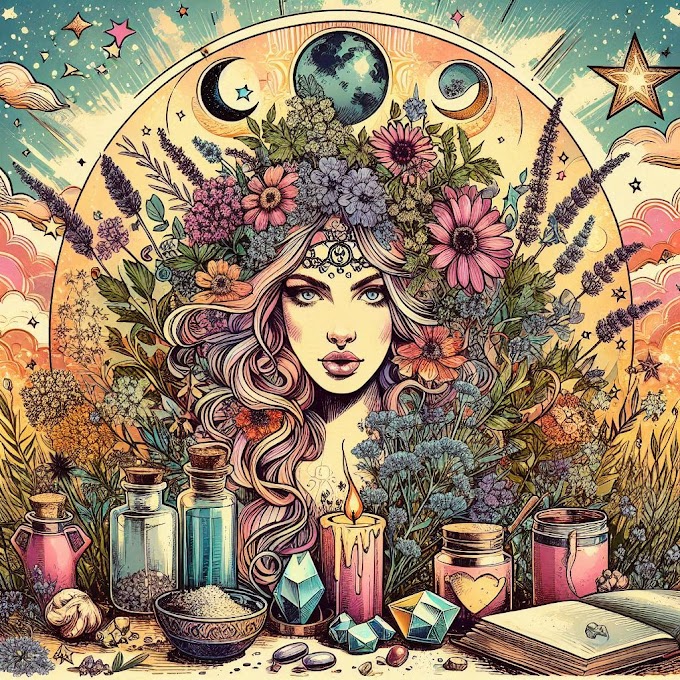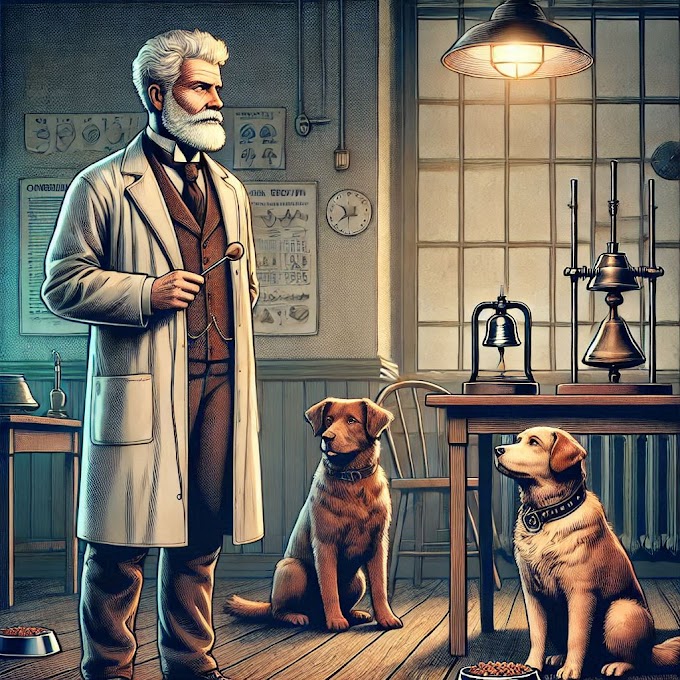☕️ Alice’s Mad Tea Party Presents: Storytime
Peter Pan and Neverland

Let me tell you about a boy who refuses to grow up. His name is Peter Pan, and his world is Neverland, a place where the sky is always a little brighter, the sea is always a little wilder, and danger and delight dance cheek to cheek. But before we get to that, we must begin in London, in a nursery, where the ordinary world waits - ticking clocks, bedtime prayers, and the dull comfort of growing up.
Wendy Darling, the eldest of the Darling children, is there in her bed with her brothers John and Michael. Their lives are proper, orderly, and predictable - exactly the sort of world Peter Pan detests. One night, a shadow flits across the nursery wall, mischievous and alive, and Peter himself follows it in. Yes, Peter Pan, with his green tunic, dagger at his side, and the faintest scent of mischief in his wake.
Peter has a problem: his shadow is not properly attached. It wiggles, flutters, and refuses to behave. Only Wendy, with her nimble fingers and gentle patience, can sew it back onto him. A small kindness, but it changes everything. For in return, Peter offers her a ticket to a place no child is meant to know: Neverland, a world where boys never age, fairies whisper secrets, and adventure is as abundant as the starlight overhead.
With Tinker Bell, a tiny but fiery fairy who sparkles like mischief itself, sprinkling her magic dust and urging them onward, Peter teaches Wendy, John, and Michael to fly. Up, over the rooftops of London, past the chimneys, past the sleeping city, into the star-speckled night. The wind whistles in their ears; the world below grows smaller. London vanishes, and soon, the shadowed archways of Neverland appear - strange forests, sparkling lagoons, and mountains carved of green and mist.
Neverland is enchanting - yes - but it is no simple playground. Here dwell the Lost Boys, a band of boys who, like Peter, never grew up. They are wild, unruly, and mischievous, following Peter’s lead with unthinking devotion. Wendy, dear sensible Wendy, becomes their mother - teaching, mending, reading bedtime stories, attempting to impose some tiny order on the chaos. But Neverland refuses order.
And lurking always is Captain Hook, the infamous pirate. Hook is a man of fashion and fury, whose hand was once devoured by a tick-tocking crocodile that now follows him relentlessly. Every hour, it’s a reminder that time itself hunts him - and that the boy who never grows up, Peter, is his eternal nemesis. Hook’s plots to capture Peter are cunning and cruel, yet often foiled by Peter’s capriciousness, bravery, or sheer luck.
The mermaids dwell in a lagoon, ethereal and dangerous. Their beauty is hypnotic, their behavior unpredictable. They flirt, tease, and, when angered, can be perilous. Peter and the children encounter them carefully, for Neverland is a place where whimsy is inseparable from peril.
Battles erupt: swords clash, arrows fly, and the pirates are relentless. Peter’s bravery shines, but so does his recklessness. He endangers those he loves, flits away from danger only to return with audacious flair, and shows a boyish pride that is both charming and maddening. Wendy, John, and Michael are caught between awe and terror, understanding for the first time that Neverland is not merely a dream, but a place with rules that are unspoken and sometimes cruel.
Time passes - though only as it does in Neverland, elastic and fleeting. The children must face a choice. Wendy, for all her love of adventure, feels the tug of reality. She loves her family, her home, the ticking clocks and the warmth of her parents’ embrace. It is this recognition, the bittersweet ache of growing up, that forces her to leave Neverland. John and Michael, following their sister, return to London, leaving Peter behind. He remains, forever young, forever wild, forever suspended between childhood’s delight and the loneliness that comes with never aging.
The Darling children return home changed. They carry in their hearts the wonder, the terror, and the beauty of Neverland. And Peter? He continues to soar through the skies, laughing at the world that insists on growing up, visiting only those children who still believe, leaving shadows and whispers behind.
Wait, no, so fast! We’re not done yet!
Ahhh, now we’re getting to the deliciously wicked part. Let’s pour the dark, shadowed tea of J.M. Barrie’s original Peter Pan.
The Dark Side of Peter Pan
Oh, my dears, sit down, tuck your knees close, and don’t spill your tea. You thought Peter Pan was all laughter, flying, and pixie dust? Ha. Wait just a moment. The story - Barrie’s story, not the squeaky-clean stage or cartoon adaptations - is far more complicated, wild, and, dare I say, sinister.
First, Peter Pan is not your charming little hero. He is selfish, capricious, and often cruel - a child who never grows up, yes, but also a child who cannot understand the consequences of his actions.
He brings Wendy and her brothers to Neverland not out of love or friendship, but because he desires a “mother” for the Lost Boys - someone to care for them so he does not have to.
He is charming, clever, brave, and dazzling, yes, but also reckless, narcissistic, and careless with the lives around him. He delights in mischief, yet his mischief carries real danger.
Neverland is not a playground. It is a magical, lawless wilderness where danger lurks in every shadow. The Lost Boys are wild and loyal, yes, but they are also vulnerable, often caught in situations they cannot fully navigate.
Pirates like Captain Hook are not merely theatrical foils; they are real threats. Hook’s hatred of Peter is deadly serious. The crocodile that hunts Hook is a persistent reminder of time’s inevitable march - a terrifying ticking presence that cannot be ignored.
The mermaids are deadly as well as beautiful. They are cruel, sometimes luring boys to their deaths or at least to harm, capricious and utterly indifferent to human kindness.
Neverland’s “magic” is not always benevolent; it is unpredictable, wild, and often perilous.
Barrie’s story also carries an unmistakable melancholy. Peter is doomed to eternal childhood, but in his eternal youth there is loneliness. He cannot love in the adult sense, cannot form lasting attachments, and even the Lost Boys are temporary companions. Barrie reminds us that eternal freedom comes at a cost: joy is fleeting, peril is constant, and innocence is fragile.
The Darling children experience all of this. Wendy is clever and brave, but she learns that Neverland is not simply fun. There are real threats, and Peter is not always there to protect anyone.
John and Michael are caught between awe and terror, understanding too late that adventure is not always safe, that courage is required, and that some things - like their parents, their home - are irreplaceable.
Ultimately, the children return home, but not with carefree hearts. Their return is bittersweet: they leave behind wonder, magic, and freedom, but they also escape death, chaos, and the growing peril of a world without rules.
Peter, meanwhile, remains, eternally young, eternally daring, eternally isolated. He is magnificent, yes, but tragic. A boy who can never grow, never change, never fully understand or care for the world around him.
And a note on Barrie himself: J.M. Barrie’s inspiration for Peter Pan came from a mix of personal tragedy, observation, and fascination with childhood. He was drawn to the idea of eternal youth as both a marvel and a curse.
The darker edges of the story - the peril, the cruelty, the loneliness - reflect Barrie’s own complex feelings about growing up, loss, and the fleeting nature of innocence. Peter Pan is both a fantasy of freedom and a warning: what we lose in growing up is precious, but what we lose in refusing to grow can be darker still.
So, my dear tea sippers, let this version steep in your mind:
Peter Pan is not merely a boy. He is charm and cruelty, freedom and recklessness, joy and peril. Neverland is not merely fun. It is wild, lawless, and beautiful - but dangerous, capricious, and haunted by time itself. And in the end, the story is a meditation on childhood, consequence, and the bittersweet ache of all that we cannot keep.

















.jpg)
.jpg)








